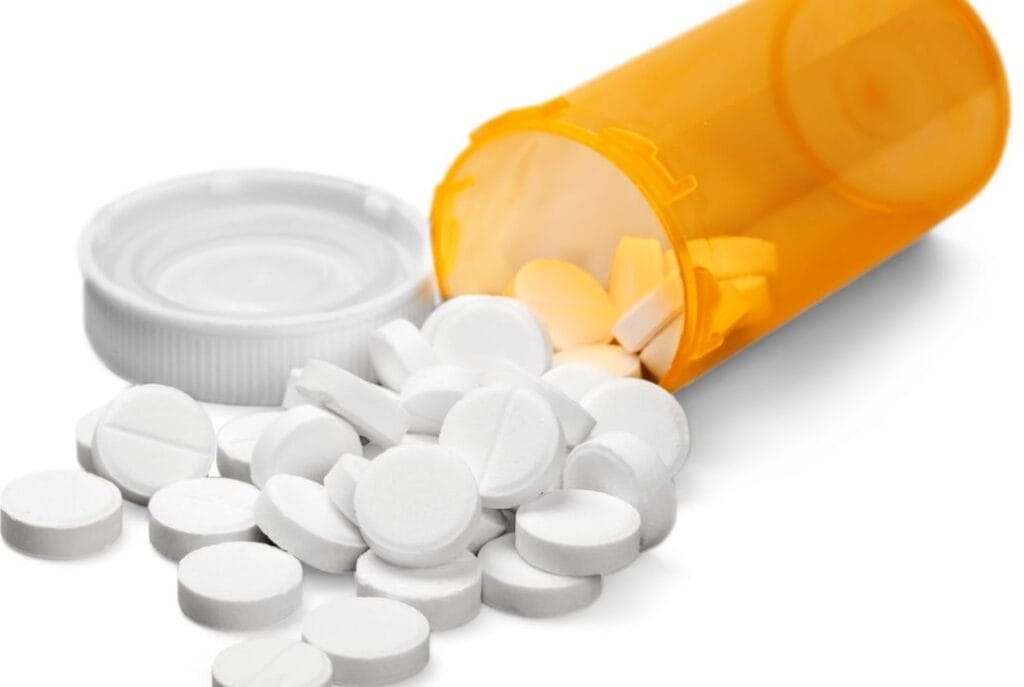When someone starts the challenging journey of breaking free from drugs or alcohol, withdrawal symptoms are a common and often difficult part of the process.
The truth is that dangerous withdrawal symptoms can happen to anyone, especially during detox from substances like alcohol and benzodiazepines.
This is why seeking professional treatment in a rehab setting is so crucial. A skilled team is essential for navigating medical detox safely, as they are trained to anticipate and recognize potential life-threatening symptoms.
Here at Zenith Behavioral Health, we can help provide the necessary medical and mental health support, ensuring the individual’s safety and minimizing unnecessary discomfort and suffering, especially when it comes to difficult withdrawal symptoms.
Is Withdrawal Dangerous?
A stereotype exists that the most dangerous drugs to detox from include street drugs like heroin and cocaine.
However, the most extremely dangerous withdrawal symptoms commonly occur in relation to alcohol and benzodiazepines. The risk of medical events like seizures or delirium tremens can put someone in physical jeopardy.
Furthermore, psychological symptoms, such as hallucinations and suicidal urges, can cause a person to act in an irrational, unsafe manner or further provoke mental illness.
What compounds the danger of these symptoms is when a person attempts to detox on their own.
This can be especially true when they attempt to give up substances cold turkey – all at once, without slowly tapering down.
The safest way to give up alcohol, benzos, and any other substance is under the supervision of addiction treatment specialists who can treat physical addiction and mental illness immediately.

Drugs with the Most Dangerous Withdrawal Symptoms
Several drugs are known to have particularly severe mental and physical symptoms, some of which can be life-threatening if not managed properly.
The most dangerous withdrawal symptoms are often associated with the following substances:
Alcohol
Symptoms
Tremors, anxiety, sweating, nausea, vomiting, seizures, and delirium tremens (DTs).
Risks
Alcohol withdrawal can be fatal, especially if it leads to DTs, which can cause severe confusion, rapid heartbeat, high blood pressure, and seizures.

Benzodiazepines
(e.g., Xanax, Valium, Ativan)
Symptoms
Anxiety, panic attacks, insomnia, muscle pain, seizures, and psychosis.
Risks
Sudden withdrawal from benzodiazepines can lead to severe seizures, which can be life-threatening, particularly after long-term use.

Opioids
(e.g., heroin, oxycodone, fentanyl)
Symptoms
Muscle aches, agitation, insomnia, sweating, diarrhea, nausea, vomiting, and intense cravings.
Risks
While opioid withdrawal is rarely fatal, it is incredibly uncomfortable and can lead to complications such as dehydration or relapse, which can increase the risk of overdose.

Dangers of Alcohol Withdrawal Symptoms
When someone with a long history of alcohol abuse stops their drinking, severe alcohol withdrawal symptoms may present themselves.
While some are simply uncomfortable, others can be dangerously severe, particularly if detox is attempted alone. This is why medical supervision during the early stages of alcohol withdrawal is so crucial.
One of the most dangerous withdrawal symptoms related to alcohol consumption is delirium tremens, often referred to as the DTs.
Delirium tremens can begin as quickly as 48 hours after the person’s last drink and can be deadly without proper medical intervention.
In fact, it proves fatal for approximately 37% of people who develop it and do not receive immediate medical treatment.

Dangers of Benzo Withdrawal Symptoms
When the body becomes dependent on benzodiazepines, normally used to treat anxiety, going through benzo withdrawal can trigger severe symptoms, including anxiety, insomnia, agitation, and, in extreme cases, seizures and hallucinations.
In some instances, benzodiazepine withdrawal can also lead to delirium tremens, causing severe confusion and affecting involuntary bodily functions, which can be fatal if not treated promptly.
Because of these serious risks, it’s essential for anyone looking to quit benzodiazepines to seek professional help in a controlled environment where they can receive the necessary medical care to manage withdrawal safely and effectively.
Dangers of Opioid Withdrawal Symptoms
While opioid withdrawal symptoms are typically not life-threatening, they can cause significant physical and psychological distress.
In some cases, dehydration from vomiting and diarrhea or complications from underlying health conditions, like seizure disorders or respiratory depression, can pose serious health risks.
Due to the intense discomfort and potential complications, it’s important for individuals attempting to quit opioids to seek professional help in a detox facility where they can receive the necessary care to manage withdrawal safely and increase their chances of successful recovery.
How to Safely Overcome Dependency on Alcohol and Benzos
The safest way to overcome substance abuse is by seeking treatment from a specialized facility.
These facilities have experienced staff trained to manage substance use disorders, providing medical and mental health care to prevent and address dangerous withdrawal symptoms.
Treatment facilities may focus on either adults or adolescents, but both offer a variety of therapies to help individuals overcome addiction or drug abuse.
The initial medical detox phase, typically lasting five to ten days, focuses on how to detox safely by managing withdrawal symptoms. After detox, patients transition to therapies like individual, group, and family counseling.
Addiction treatment not only ensures safety during the program but also equips individuals with healthy coping skills and emotional support to resist triggers and avoid relapse, supporting long-term recovery.

Begin Treatment for Alcohol & Benzo Addiction in Phoenix
Do you have an addiction to alcohol or benzos and want to get help but are afraid of dealing with withdrawal?
When a person is addicted to alcohol and benzos, getting off them can prove especially tricky if the person tries to go it alone.
Zenith Behavioral Health in Phoenix, Arizona, employs a staff of medical experts who know how to provide mental support and treat withdrawal symptoms while keeping the person’s safety in focus.
We offer medications to help reduce and eliminate many symptoms, making the detox process more comfortable for the individual.
If you want more information on treatment for alcohol and Benzo addiction or for co-occurring disorders, we’re happy to explain our program to you.
Visit our admissions page now and find out how to get started.

